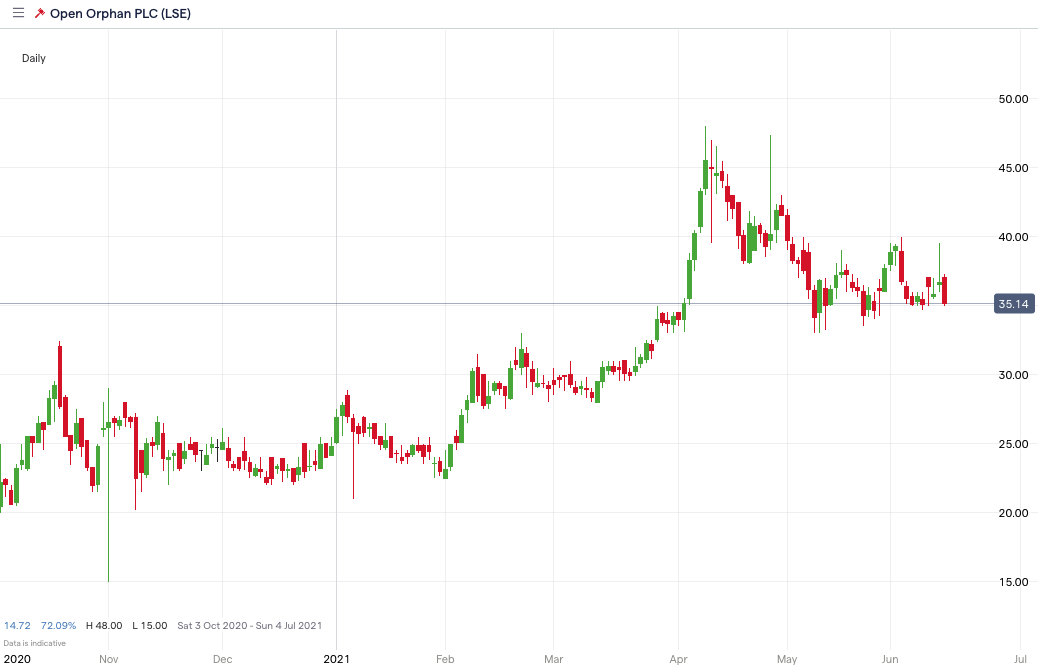
Shares of Open Orphan are falling after the company posted widened losses in 2020.
The AIM-listed pharmaceutical company reported a loss of £10.79 million, nearly double the £5.7 million loss in 2019.
Project and administrative costs contributed to the loss, rising to £32.4 million from £8.67 million the previous year.
Revenue has jumped to £21.99 million from £3.5 million.
The company said it has made a “very strong” start this year and targets a full-year profit in 2021.
Commenting on its 2020 results, Cathal Friel, Executive Chairman of Open Orphan, commented: “The Group is not simply satisfied to have returned to a positive operating position at the end of 2020 and to be targeting to deliver a full year profit in 2021, it is now focused to further enhance the quality of profits and earnings of the Group going forward.”
In a separate announcement, Open Orphan said that Poolbeg Pharma will seek admission of its shares to trading on AIM.
Funds raised as part of admission will be used primarily to fund the clinical trial costs associated with developing the company's POLB 001 asset to treat severe influenza and acquire and develop new portfolio assets.
“Poolbeg Pharma is a great opportunity to maximise the potential of some of Open Orphan's pharma assets which are non-core to our successful human challenge clinical trial business in a focused and capital efficient way,” Friel said on the demerger.

Open Orphan shares are currently down 11% at 31.15p.
Should you invest in Open Orphan shares?
Open Orphan shares are traded on the London stock exchange's AIM market (the alternative investment market), which is the submarket specifically for smaller companies. AIM stocks are attractive to investors as they have tax advantages and smaller companies have the potential to benefit from rapid growth. But are Open Orphan shares the best buy? Our stock market analysts regularly review the market and share their picks for high growth companies




